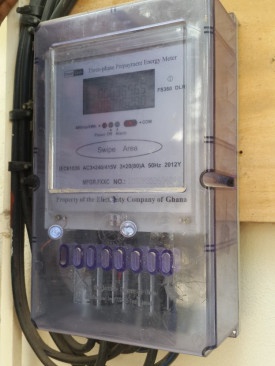 University engineers must start, at least, producing electric and water meters
University engineers must start, at least, producing electric and water meters
The barriers against innovations for a more productive transformative education in poorer countries are quite high. The obstacles are the chief reasons why Africa, for example, continues to be so deprived long after winning the independence struggles. It’s a shame that the continent with so much arable land with a great many natural resources to boot also happens to be the poorest, with the youth escaping perilously in droves to places where they are not wanted!
The visionary preamble
It has to be reiterated that education in Ghana must be a force or a movement to raise people’s standards of living exactly where they are located so that they will choose to stay, add value to the natural endowment and prosper. For that reason, we need the kind of education that can influence growth from the start. And political manifestoes – to be worthy of the minds behind them – must first and foremost recognize that prosperity must extend into all the districts and regions in Ghana.
An inflection point is that point in the life of a country, an organization, or an individual where without changing course the entity is destined to be ruined. It is sad that the very people who should know better are defiant about trying bolder alternatives; they prefer to live with the colonial mindset as it keeps them in privileged positions insulated from the poor, the very antithesis of independence. Without the proper interventions the poor will continue to suffer. The political manifestos must reinvigorate the economy to alleviate poverty.
The re-invention of education in Ghana requires a three-pronged approach. First is the Content: that is, selecting a mix containing the most appropriate materials to be learned among the other competing subject choices. Every subject is important, but they can’t all be chosen and taught at the same time. To be useful, the choices must reflect the needs of the time and space.
The Second is the Context: what is it that can be done, or what processes can be followed with the subjects to guide each school to be relevant in their respective districts to complement efforts on the national level.
The Third is the Community: that is, the intent of a productive education is to upgrade the standards of living in every community where the schools and the people themselves are situated.
Education in Agriculture
In Lee Kuan Yew’s visit to Ghana (from Singapore) in 1964, he posed a query whose import resonates to this very day: Why a country rich with agricultural prospects should neglect it, but choose the grammar type aristocratic education. Looking back, we see how thoughtless and unimaginative it is for a country crying out for jobs and employment for the youth to continue importing sugar, corn flakes, canned corn, flour, biscuits, rice, canned tomatoes, tropical juices, chickens, corned beef and the rest.
What Lee meant, in essence, was that to perceive corn as mere corn – or rice as just plain rice – is shortsighted. Our education system must recognize that such commodities are strategic agricultural inputs for bona fide industries with far reaching value added, economic, and social benefits for the nation. In a nutshell, agriculture or agri-business needs to be scaled up beyond the miniscule hoe and cutlass mindset. Our education system must see the bigger productive picture, and not miss the forest for the trees.
District wide teacher training facilities
The 38 teacher training colleges in Ghana are never sufficient to meet the demands of the 14,000 or so basic schools. They need to be beefed up and their services extended into every district in the country. On-site teacher education must be a continuous affair to update the skills of the teachers consistently. Quality training is not a once-in-a-blue moon affair. Like physical structures, the public schools also need to develop “Cognitive Structures” where the three key items are digitized for the ease of updates and access electronically: One, the Schemes of Work / Weekly Forecasts; Two, Lesson Notes with the instructional strategies; and Three, Teaching and Learning Materials (TLMs).
The lack of adequate teacher preparation is what causes the mass Basic Entrance Certificate Examination (BECE) failures in a many districts, and the irony is that the youth – already victimized through adult unpreparedness and inefficiencies – are made to bear the blame. We need to be reminded of the 6 Ps consistently: “Proper Prior Preparation Prevents Poor Performance.” The better endowed schools in the districts – with electricity and computer facilities, etc – could serve as the hubs or satellites to produce such materials, in teams, and then distributed to the less endowed schools, including the schools under trees.
Applied Science for Industry
The framers of the various political manifestos must think of the large numbers of electric meters needed for every single house in Ghana that will require electricity from the national grid. That number may run into a million or so of electric meters. Does it make sense, then, to import all these meters into the country? Will it be too far-fetched to ask why our PhDs in the applied sciences – with massive titles and research credentials to boot – not work with their science students to at least attempt to produce these ubiquitous gadgets?
Again, let’s think of the number of water meters required for every household. That number may also run into the million. Why on earth must such simple gadgets be imported? Don’t we need those jobs in Ghana? The wonder is how the manifestos do not stress enough on these common sense requirements! The quest for “Critical Thinking” for engaging “hands-on” activities will not go away. Our education system tends to be stale, but both the world’s realities and education must converge.